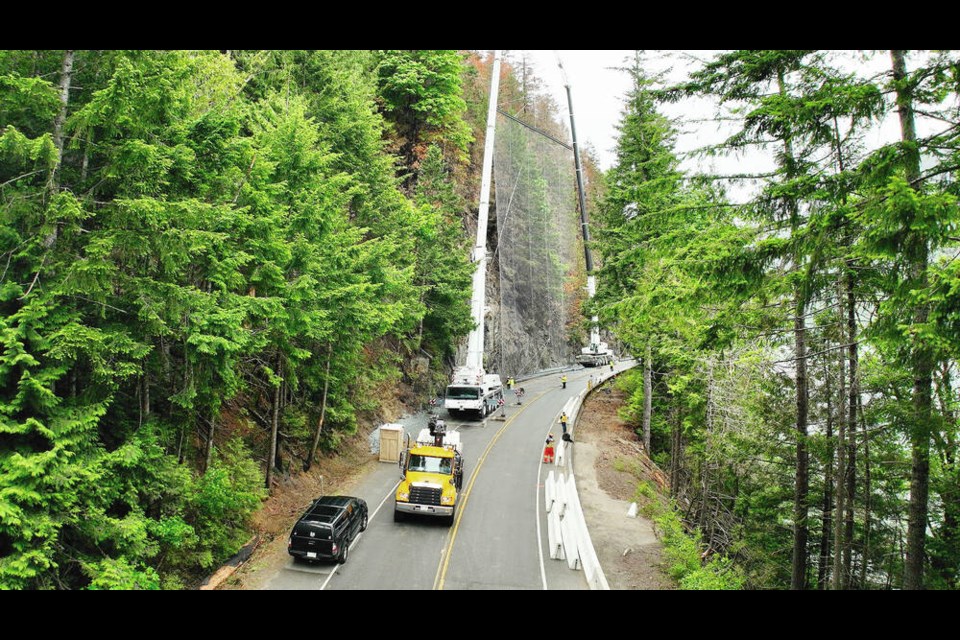By this time last year, Vancouver Island had seen three wildfires since the fire season began April 1. This year, the number has spiked to 38 so far.
The news comes as the Coastal Fire Centre partially lifted a campfire ban imposed June 8, but kept it in effect on Vancouver Island and the Gulf Islands.
Lightning is expected to spark more wildfires as the summer progresses, said fire-information officer Kimberly Kelly, who urged the public to use extreme caution in any forest activities.
The Cameron Bluffs fire that closed a stretch of Highway 4 that connects to Port Alberni, Ucluelet and Tofino remains under control at 222 hectares, with work proceeding to reopen the highway to single-lane alternating traffic this weekend.
To reduce congestion and keep traffic flowing smoothly through the corridor, MacMillan Provincial Park (Cathedral Grove) and day-use picnic areas at Cameron Lake and Beaufort at Little Qualicum Falls will be closed until the highway is fully reopened, the Transportation Ministry said.
Signs will be posted and barrier fencing will be set up in the Cathedral Grove area, with ministry staff guiding traffic.
Meanwhile, a fire near Sayward that began in late May is being held at 230 hectares, a fire at Nimpkish Lake near Port McNeill is being held at 7.9 hectares and a fire at Mozino Point near Tahsis is being held at less than a hectare. The latter is in the same area where a plane crashed Tuesday afternoon, although no one could confirm if it’s related.
The fire-danger rating on Vancouver Island is moderate in the south and the north, and high with pockets of extreme on the mid-Island, Kelly said.
Campfires are now permitted in the Sea to Sky Resource District, the Sunshine Coast Resource District, the Chilliwack Resource District, and the portion of the Central Coast Regional District that falls within the North Island Central Coast Resource District.
The change to the campfire ban on the mainland stems from cooler conditions and rainfall reducing the fire danger rating in the listed areas, but the ban could be restored if conditions change, the fire centre said.
If there are no further changes, the current restrictions on Vancouver Island and the Gulf Islands are expected to remain until Oct. 31.
The Coastal Fire Centre did not bring in a campfire ban last year until Aug. 4.
Category 2 and Category 3 fires, which include backyard burning and fireworks, remain prohibited in the Coastal Fire Centre and most of the rest of B.C.
Outdoor stoves are not banned.
The prohibitions apply to all public and private land, unless indicated otherwise by a local government bylaw or other regulation.
Failure to comply with a fire prohibition can result in a $1,150 ticket. If a person is convicted for an offence that leads to a court proceeding, the result could be a fine of up to $100,000 or a year in jail.
The Coastal Fire Centre extends from the U.S.-Canada border at Manning Park and includes Tweedsmuir South Provincial Park to the north, the Sunshine Coast, the Lower Mainland, Vancouver Island, the Gulf Islands and Haida Gwaii.
>>> To comment on this article, write a letter to the editor: [email protected]



